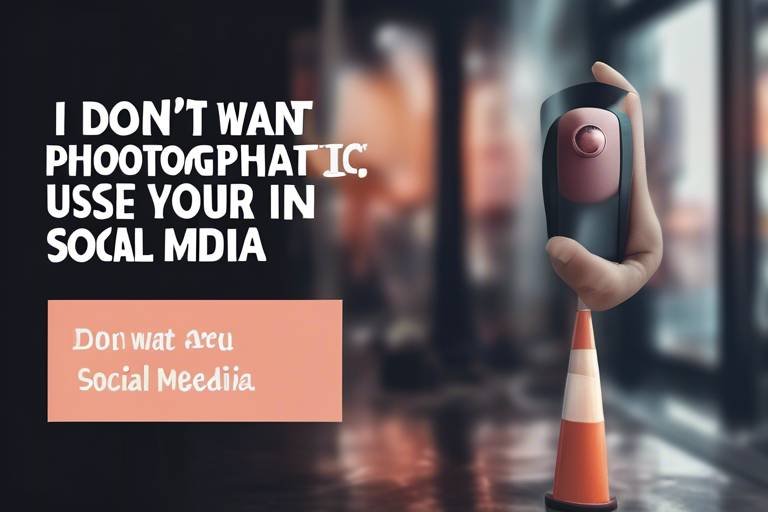How to Protect Yourself from Online Stalking?
In our increasingly digital world, the threat of online stalking has become a serious concern for many individuals. With just a few clicks, someone can invade your privacy, monitor your activities, and create a sense of fear and anxiety. So, how do you protect yourself? It's essential to stay informed and take proactive steps to safeguard your online presence. This article will explore effective strategies and tips to help you shield yourself from online stalkers, including recognizing the signs, enhancing your privacy settings, and seeking support when needed.
Online stalking is not just a buzzword; it involves persistent harassment or monitoring through various digital platforms. Imagine someone lurking in the shadows of your online life, constantly watching your every move. Recognizing the signs of online stalking is crucial for early intervention and protection. Stalkers may be driven by various motivations, including obsession, revenge, or a desire for control. They often employ tactics like creating fake profiles, sending unwanted messages, or even spreading rumors. Understanding these behaviors can empower you to take action and protect yourself.
Identifying the signs of online stalking can help you take action before situations escalate. It's important to differentiate between normal online interactions and potential stalking behaviors. Some common indicators include:
- Unwanted Communication: If you're receiving excessive messages, comments, or friend requests from someone you don't know or don't want to interact with, it may be a red flag. Stalkers often bombard their targets with messages, making it hard to ignore them.
- Monitoring Social Media Activity: If you notice someone liking or commenting on your posts excessively, especially those that are private or meant for close friends, they might be stalking you.
- Tracking Online Presence: Stalkers can gather information from your online activities, including your location, interests, and daily routines. Understanding how your online presence can be tracked is vital for your safety.
Receiving excessive messages, comments, or friend requests can indicate stalking. It's essential to recognize how to respond effectively. If someone is messaging you incessantly, consider the following steps:
- Do Not Engage: Avoid responding to unwanted messages as this can encourage further communication.
- Block and Report: Utilize the blocking features on social media platforms to prevent further contact. Reporting the individual can also alert the platform to their behavior.
By taking these steps, you can ensure your personal safety and mental well-being.
Stalkers often monitor social media profiles to gather information. To protect yourself, regularly review your privacy settings and limit visibility. Here are some tips:
- Set Profiles to Private: Make sure your social media accounts are set to private, allowing only approved friends to see your posts.
- Limit Personal Information: Avoid sharing sensitive information such as your location or daily routines that could be exploited by a stalker.
Understanding how your online presence can be tracked is vital. Stalkers might use various methods such as:
- Monitoring your public posts
- Using search engines to find personal information
- Creating fake profiles to gain access to your information
To minimize your digital footprint, consider using privacy-focused search engines and regularly auditing your online accounts.
Adjusting privacy settings on social media and other online platforms is essential for protection. Follow this step-by-step guide to secure your personal information:
- Log into your social media account.
- Navigate to the settings or privacy section.
- Review who can see your posts and adjust accordingly.
- Limit friend requests to only people you know.
- Regularly update your passwords and enable two-factor authentication.
By taking these measures, you can significantly reduce the risk of unwanted attention and harassment.
Finding support from friends, family, or professionals can be crucial when dealing with online stalking. It's important to talk about your experiences and not feel isolated. There are numerous resources available, including hotlines and online communities, that can provide guidance and emotional support.
Knowing when and how to report online stalking to authorities is important. If you feel threatened, document incidents by taking screenshots of messages and noting dates and times. Approach law enforcement with this evidence, as it can help them understand the severity of the situation.
Community support groups can offer valuable resources and emotional support. Engaging with local or online support networks can help you connect with others facing similar challenges. These groups can provide a safe space to share experiences and learn from one another.
Q: What should I do if I think I'm being stalked online?
A: Take it seriously. Document everything, enhance your privacy settings, and consider reporting to authorities.
Q: Can I prevent online stalking?
A: While you can't control others' actions, you can take proactive steps to protect your online presence and privacy.
Q: Where can I find support?
A: Look for local support groups, online communities, or professional counseling services that specialize in online harassment.

Understanding Online Stalking
Online stalking is a serious issue that can affect anyone in today's digital age. It involves persistent harassment or monitoring through various digital platforms, such as social media, email, and even gaming networks. The anonymity of the internet often emboldens stalkers, making it easier for them to engage in harmful behaviors without facing immediate consequences. Understanding the motivations and tactics used by these individuals is crucial for early intervention and protection.
Stalkers may be driven by a range of motivations, from obsession to revenge, and they often employ various tactics to achieve their goals. Some common methods include:
- Monitoring Online Activity: Stalkers may create fake profiles to follow their targets, keeping tabs on their online interactions and personal updates.
- Unwanted Communication: They might flood their victims with messages, comments, or friend requests, creating a sense of unease and fear.
- Gathering Personal Information: Through social engineering techniques, stalkers can collect sensitive information that can be used to intimidate or manipulate their targets.
Recognizing these tactics is the first step in protecting yourself. Many individuals may not realize they are being stalked until it becomes overwhelming. The signs can often be subtle, and what may seem like harmless attention can quickly escalate into something more sinister. That's why it's essential to stay vigilant and aware of your online interactions.
Moreover, the emotional toll of online stalking can be devastating. Victims often experience anxiety, depression, and a sense of helplessness as they navigate the complexities of their situation. It's not just about the actions of the stalker; the constant fear of being watched or harassed can lead to significant mental health challenges. This makes it imperative to take proactive steps to safeguard your online presence.
In conclusion, understanding online stalking is about recognizing the behaviors and tactics used by stalkers and being aware of the potential risks associated with sharing personal information online. By staying informed and vigilant, you can take the necessary steps to protect yourself and maintain your safety in the digital world.
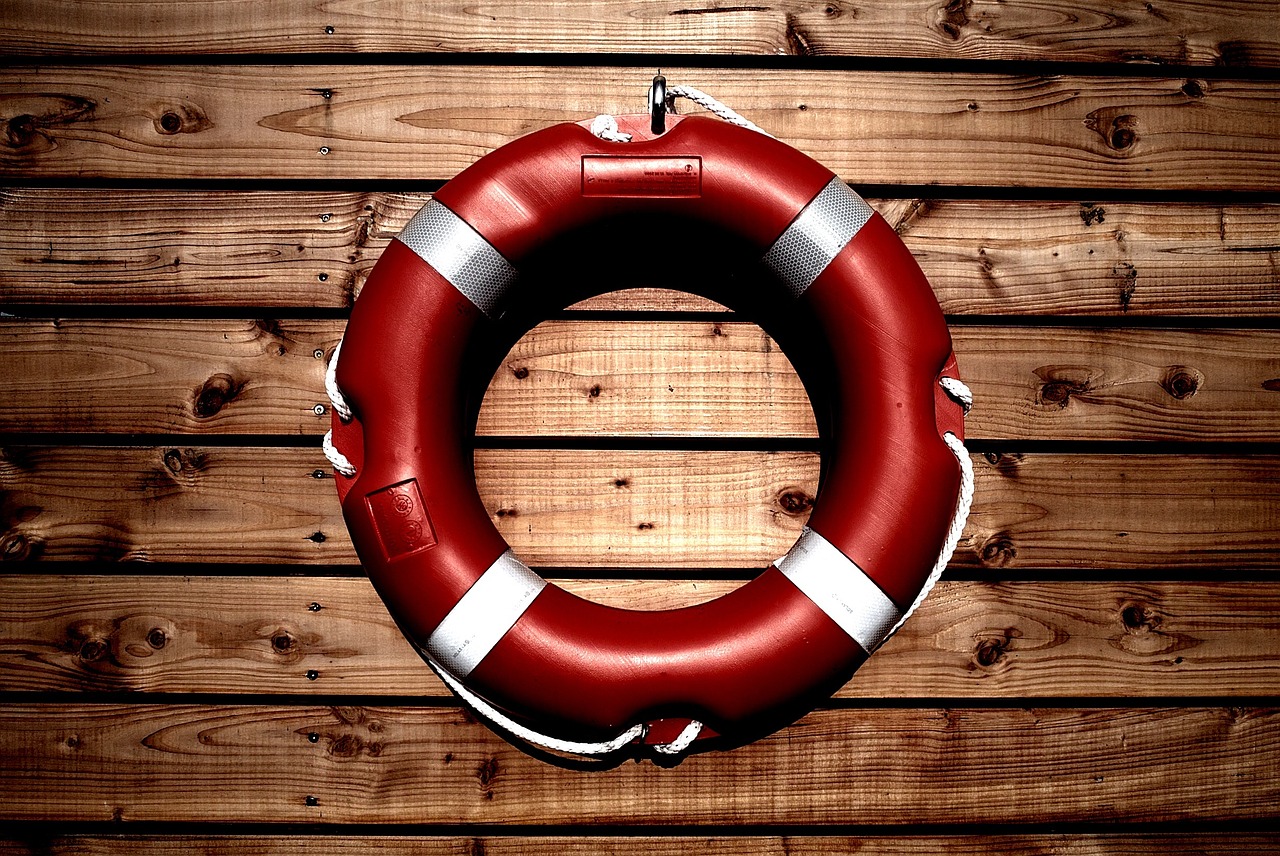
Recognizing the Signs
When it comes to online stalking, being able to recognize the signs is your first line of defense. It’s like having a radar that alerts you to potential danger before it escalates. But what exactly should you be looking out for? Well, the signs can be subtle or glaringly obvious, and understanding the difference can be crucial for your safety.
One of the most telling signs of online stalking is unwanted communication. This can manifest in various forms, such as:
- Excessive messages or comments on your posts
- Multiple friend requests from the same person
- Invasive questions about your personal life
If you find yourself constantly deleting messages from someone who seems overly interested in your day-to-day activities, it’s time to take a step back and evaluate the situation. It’s not just about the volume of communication but also the nature of the messages. Are they friendly, or do they make you feel uncomfortable?
Another significant sign is the monitoring of your social media activity. Stalkers often keep tabs on your online presence, which can include:
- Commenting on posts from months ago
- Knowing details about your whereabouts without you having shared them
- Following you across multiple platforms
These behaviors can be alarming, especially if they come from someone you don’t know well. It’s essential to regularly review your privacy settings on social media. Make sure you’re aware of who can see your posts and personal information, as this can significantly reduce the risk of unwanted attention.
Furthermore, stalkers are skilled at tracking your online presence. They can gather information from various sources, including:
- Your public profiles on social media
- Comments you leave on forums or blogs
- Your activity on shared platforms like gaming sites
Understanding how your digital footprint can be traced is vital. For instance, even a simple post about your favorite coffee shop can give stalkers clues about where to find you. To minimize your exposure, consider tightening your privacy settings and being cautious about what you share online.
In summary, recognizing the signs of online stalking early on can make a world of difference. It’s all about staying vigilant and trusting your instincts. If something feels off, it probably is. Remember, your safety and peace of mind should always come first.

Unwanted Communication
Unwanted communication is one of the most alarming signs of online stalking, and it can manifest in various forms. Imagine waking up to a flood of messages from someone you barely know or receiving persistent friend requests from an anonymous profile. It's unsettling, right? This type of behavior can escalate quickly, making it crucial to identify it early and take appropriate action. If you're ever in a situation where you feel overwhelmed by excessive messages, comments, or other forms of contact, it's essential to recognize that this is not typical behavior.
Stalkers often use digital platforms to bombard their targets with unsolicited communication. This can include:
- Excessive Messaging: Whether it's through direct messages, emails, or comments, receiving a high volume of messages can be a red flag. If someone is reaching out more than you feel comfortable with, trust your instincts.
- Inappropriate Comments: Comments that make you feel uncomfortable or are overly personal can indicate that someone is crossing boundaries.
- Repeated Friend Requests: If you notice someone repeatedly sending friend requests despite your rejection, it’s a clear signal that they may not respect your boundaries.
So, how should you respond to such unwanted communication? First, it’s essential to remain calm. Reacting impulsively can sometimes escalate the situation. Instead, consider these steps:
- Document Everything: Keep a record of all communications. Take screenshots and save messages, as this documentation can be crucial if you decide to report the behavior.
- Block the Individual: Most social media platforms and messaging apps allow you to block users. This can be a quick way to stop unwanted messages from reaching you.
- Adjust Your Privacy Settings: Review your privacy settings to limit who can contact you or see your content. This can help reduce the chances of unwanted communication.
It’s also vital to talk to someone you trust about your experience. Sharing your concerns with friends or family can provide emotional support and help you feel less isolated. Remember, you are not alone in this; many individuals face similar challenges in the digital age. If the situation escalates or you feel threatened, don’t hesitate to reach out to authorities or support groups that specialize in dealing with online harassment.
In conclusion, recognizing unwanted communication is the first step toward protecting yourself from online stalking. Stay vigilant, trust your instincts, and take proactive measures to safeguard your online presence. Your safety and well-being are paramount, so don't hesitate to take action if something feels off.
Q: What should I do if I receive unwanted messages?
A: Document all communications, block the sender, and adjust your privacy settings. If necessary, seek support from friends or authorities.
Q: How can I tell if someone is stalking me online?
A: Signs include excessive messaging, inappropriate comments, and repeated friend requests. Trust your instincts if something feels wrong.
Q: Is it important to report online stalking?
A: Yes! Reporting can help protect you and potentially prevent the stalker from targeting others.

Monitoring Social Media Activity
In the digital age, our social media profiles are like open windows into our lives. While sharing moments with friends and family can be delightful, it also opens the door to potential risks, including online stalking. Monitoring your social media activity is essential to maintaining your privacy and security. So, how can you effectively keep an eye on your online presence? Let's dive into some practical strategies.
First off, it’s crucial to understand that stalkers often use social media to gather information about their targets. They may track your posts, comments, and interactions to build a profile of your life. This means that the more you share, the more they can learn about you. Therefore, regularly reviewing your privacy settings is a must! You can start by checking who can see your posts and who can send you friend requests. Most platforms allow you to limit visibility to friends only, and some even let you customize settings for individual posts.
Additionally, consider the following tips when monitoring your social media activity:
- Audit Your Friends List: Regularly review your friends or followers. If you notice any suspicious accounts or people you don’t know, don’t hesitate to remove them.
- Be Cautious with Check-Ins: While it’s fun to share your location in real-time, it’s wise to think twice. Sharing your location can give stalkers the upper hand, allowing them to know where you are at any given moment.
- Limit Personal Information: Avoid sharing sensitive details such as your phone number, address, or daily routines. The less information you provide, the less they have to work with.
Moreover, many social media platforms offer features that can help you monitor your activity. For instance, you can check your account’s activity log to see who has interacted with your posts or profiles. This can give you insights into who is paying attention to your online presence. If you notice any unusual activity, such as repeated views from unfamiliar accounts, it might be time to tighten your privacy settings even further.
Lastly, don't forget the importance of being proactive. Regularly search your name on various platforms to see what information is publicly accessible. This can help you identify any potential risks and take action to mitigate them. Remember, just like you wouldn’t leave your front door wide open, your online profiles deserve the same level of protection.
In conclusion, monitoring your social media activity is a vital step in protecting yourself from online stalking. By being vigilant and proactive, you can significantly reduce the risk of unwanted attention and harassment. Stay safe, stay aware, and remember that your online presence is yours to control!
Q: What should I do if I suspect I'm being stalked online?
A: If you suspect you're being stalked, take immediate action by documenting any incidents, adjusting your privacy settings, and considering reporting the behavior to the platform or authorities.
Q: Can I block someone who is stalking me on social media?
A: Yes, most social media platforms allow you to block users. This prevents them from viewing your profile or interacting with you.
Q: How can I report online stalking?
A: You can report online stalking to the social media platform and local authorities. Keep records of any messages, screenshots, or interactions as evidence.
Q: Are there any tools to help monitor my online presence?
A: Yes, there are various tools and apps available that can help you monitor your online presence and alert you to any unusual activity.
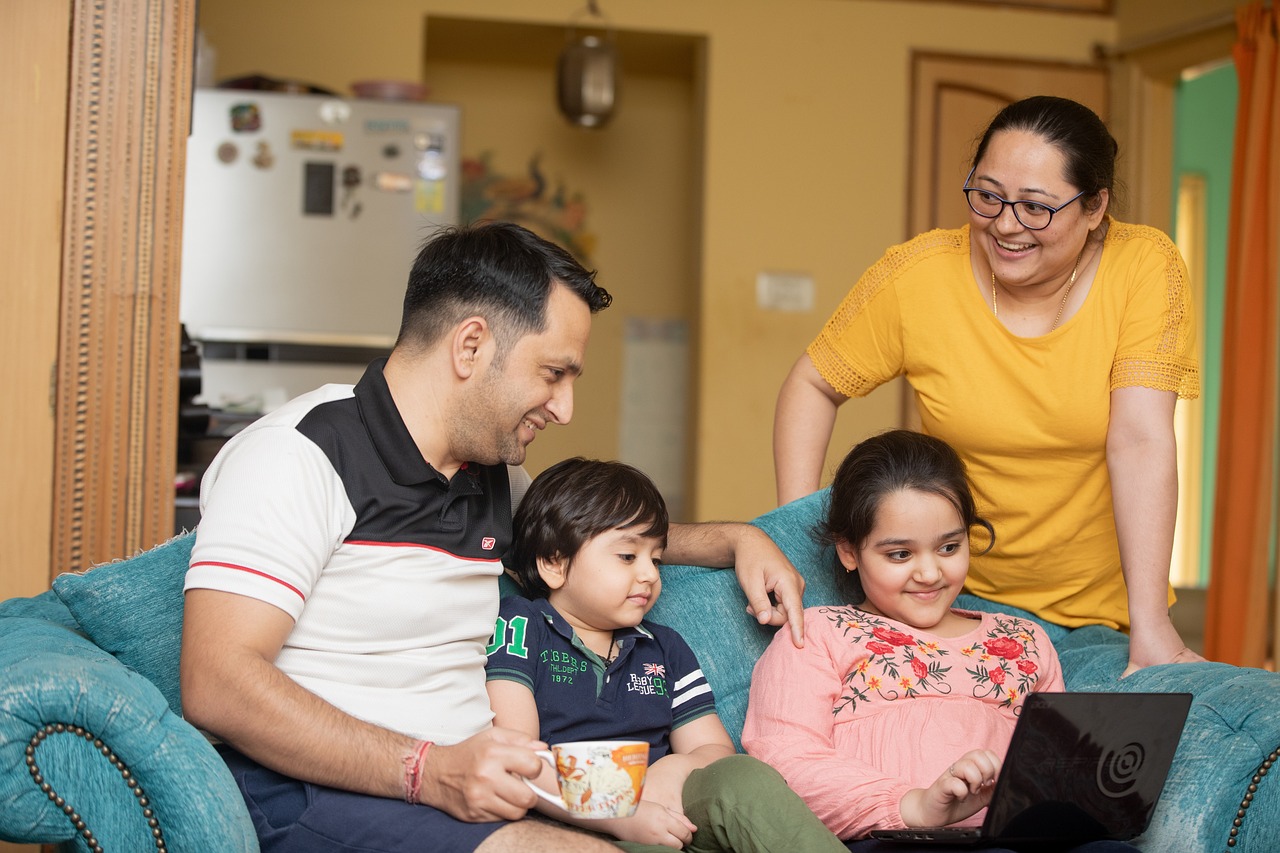
Tracking Online Presence
In today’s digital age, understanding how your online presence can be tracked is not just a smart move; it’s essential for your safety. Think of your online presence as a digital footprint—every post, comment, and like contributes to a trail that can be followed by anyone with the right tools or intentions. This is particularly concerning when it comes to online stalking, where a stalker may exploit this information to harass or intimidate you. So, how can you minimize this risk and take back control of your digital life?
First, it's crucial to recognize that your online activities are often not as private as you might think. From social media platforms to online shopping sites, data about your interests, locations, and even personal details are collected and can be accessed by others. Stalkers can use this information to build a profile on you, making it easier for them to invade your privacy. Therefore, being proactive in managing your online presence is key.
Here are some effective strategies to help you minimize your digital footprint:
- Audit Your Social Media Accounts: Regularly check your profiles and remove any information that could be used against you. This includes photos, location tags, and even your list of friends. Remember, what you post today could come back to haunt you tomorrow.
- Limit Personal Information: Avoid sharing sensitive information such as your phone number, home address, or details about your daily routine. The less a stalker knows about you, the better.
- Use Privacy Settings: Most social media platforms offer privacy settings that allow you to control who sees your posts and personal information. Take the time to explore these settings and customize them to suit your comfort level.
Additionally, consider using search engines to see what information is publicly available about you. Simply enter your name in quotes and see what pops up. This can give you insight into what others might see and help you identify any areas where you might need to tighten your privacy.
Moreover, be mindful of the apps you use and the permissions you grant them. Many apps request access to your location, contacts, and other personal data. Always question whether the app truly needs this information to function. If it doesn’t, deny the permission.
Lastly, consider utilizing privacy-focused tools and services. There are various tools available that can help you monitor your online presence and alert you to any unusual activity. Implementing these can add an extra layer of security, helping you stay one step ahead of potential stalkers.
In summary, tracking your online presence is not just about being cautious; it’s about taking control. By understanding how your information can be accessed and implementing strategies to protect yourself, you can significantly reduce the risk of becoming a target for online stalking. Remember, the internet is a powerful tool, but with great power comes great responsibility—especially when it comes to your personal safety.
Q: What should I do if I suspect I'm being stalked online?
A: If you believe you're being stalked online, it's crucial to document all interactions and report them to the appropriate authorities. Additionally, consider reaching out to trusted friends or family for support.
Q: Can I completely erase my online presence?
A: While it's challenging to erase your entire online presence, you can take significant steps to minimize it. Regularly audit your accounts, delete old posts, and adjust privacy settings to limit visibility.
Q: How can I ensure my social media accounts are secure?
A: Use strong, unique passwords for each account, enable two-factor authentication, and regularly review your privacy settings to control who can see your information.
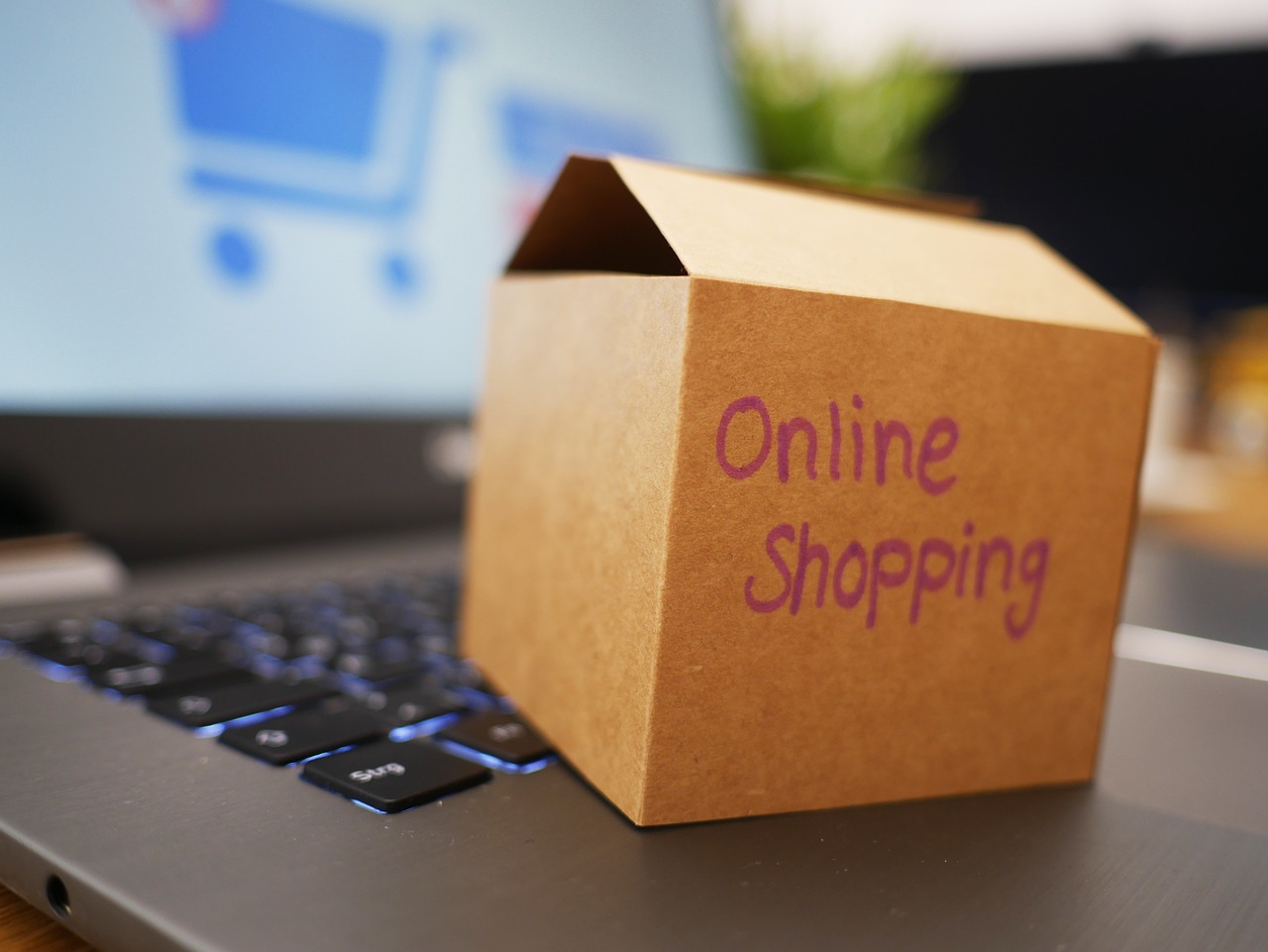
Enhancing Privacy Settings
In today’s digital age, where sharing personal moments online has become second nature, enhancing your privacy settings is not just a recommendation; it’s a necessity. Imagine your online presence as a house. If you leave the doors and windows wide open, anyone can stroll in and snoop around. By adjusting your privacy settings, you are essentially locking those doors and windows, ensuring that only trusted individuals have access to your personal space.
First and foremost, it's essential to review the privacy settings on all your social media accounts. Each platform has its own set of rules and features, so you must tailor your settings accordingly. For instance, on Facebook, you can customize who sees your posts and who can send you friend requests. By selecting options like "Friends Only" or even "Only Me," you can significantly reduce the chances of unwanted attention. Similarly, platforms like Instagram and Twitter offer options to protect your tweets or make your account private, which can be a game-changer in safeguarding your information.
Moreover, don’t underestimate the power of strong passwords. A weak password is like leaving your front door ajar. Use a combination of letters, numbers, and special characters to create a robust password. Better yet, consider using a password manager to keep track of your passwords securely. This way, you can use different, complex passwords for each of your accounts without the hassle of remembering them all.
Another critical aspect of enhancing your privacy settings is being mindful of the information you share. Think about it: every time you post a photo or update your status, you’re giving away pieces of your life. Before sharing, ask yourself: “Would I be comfortable if this information was shared with strangers?” If the answer is no, it’s best to keep it private. Additionally, be cautious about sharing your location. Many apps request access to your location, and while it can be handy, it can also expose you to risks.
Lastly, consider using two-factor authentication (2FA) wherever possible. This feature adds an extra layer of security, requiring not just your password but also a verification code sent to your phone. It’s like having a security guard at your door, ensuring that even if someone gets hold of your password, they still can’t access your account without that second form of verification.
In summary, enhancing your privacy settings is a proactive step toward protecting yourself from online stalking. By reviewing privacy settings, using strong passwords, being mindful of what you share, and utilizing two-factor authentication, you can create a safer online environment. Remember, your digital footprint matters, and taking control of it is empowering!
- What should I do if I suspect I am being stalked online?
If you feel threatened, it’s crucial to document all interactions and consider reporting the behavior to the platform and law enforcement. - Can I block someone who is stalking me?
Yes, most social media platforms allow you to block users, which can help prevent further contact. - How often should I update my privacy settings?
It’s advisable to review your privacy settings every few months or whenever a platform updates its policies. - What are some signs that my privacy settings are not secure?
If you receive unsolicited messages, friend requests from strangers, or notice that your posts are being shared without your consent, it may indicate that your privacy settings need to be strengthened.

Seeking Support and Resources
When navigating the murky waters of online stalking, it’s crucial to remember that you’re not alone. Seeking support from friends, family, or professionals can make a world of difference. It’s like having a lifebuoy when you’re lost at sea—something to hold onto while you figure out your next steps. The emotional toll of online stalking can be overwhelming, but there are numerous resources available to help you regain control and find peace of mind.
First and foremost, don’t hesitate to reach out to those closest to you. Sharing your experiences with trusted friends or family members can alleviate some of the burdens you’re carrying. They can provide emotional support, practical advice, or even accompany you when reporting incidents to authorities. Remember, it’s okay to lean on your support network; that’s what they’re there for!
If you feel that your situation requires more specialized assistance, consider contacting professionals who specialize in dealing with online harassment. Mental health professionals can offer coping strategies and emotional support tailored specifically for the distress caused by stalking. Organizations dedicated to victims of cybercrime and harassment can also provide valuable resources, including legal advice and counseling services. Here’s a quick overview of some resources you might find helpful:
| Resource | Description | Contact Information |
|---|---|---|
| National Domestic Violence Hotline | Provides support and resources for victims of domestic violence, including online stalking. | thehotline.org | 1-800-799-7233 |
| Cyber Civil Rights Initiative | Offers resources and support for victims of online harassment and stalking. | cybercivilrights.org |
| Stalking Resource Center | Provides resources for victims of stalking, including legal advice and safety planning. | victimsofcrime.org |
Another significant step is knowing how to report your situation effectively. Documenting every instance of stalking is essential; keep records of messages, screenshots of interactions, and notes on any incidents. This documentation will be invaluable when you approach law enforcement or legal professionals. It’s like building your case brick by brick, ensuring that you have a solid foundation for your claims.
In addition to professional help, consider joining community support groups. These groups can provide a safe space for sharing experiences and strategies for coping with online stalking. Whether online or in-person, connecting with others who understand what you’re going through can be incredibly validating. It’s comforting to hear, “I’ve been there too,” and to know that you’re part of a community that supports each other.
Lastly, don’t underestimate the power of online forums and social media groups focused on safety and support. Many platforms exist where individuals share their stories, offer advice, and provide emotional support. Just remember to stay cautious about sharing personal information in these spaces, as anonymity is key to maintaining your safety.
- What should I do if I'm being stalked online?
Document everything, reach out for support, and consider reporting to authorities. - Can I report online stalking to the police?
Yes, you can report online stalking, especially if you have documented evidence. - Are there any legal protections against online stalking?
Yes, many jurisdictions have laws against stalking, including online harassment. Consult local laws for specifics. - How can I ensure my online safety?
Regularly update privacy settings, be cautious about sharing personal information, and consider using security tools.
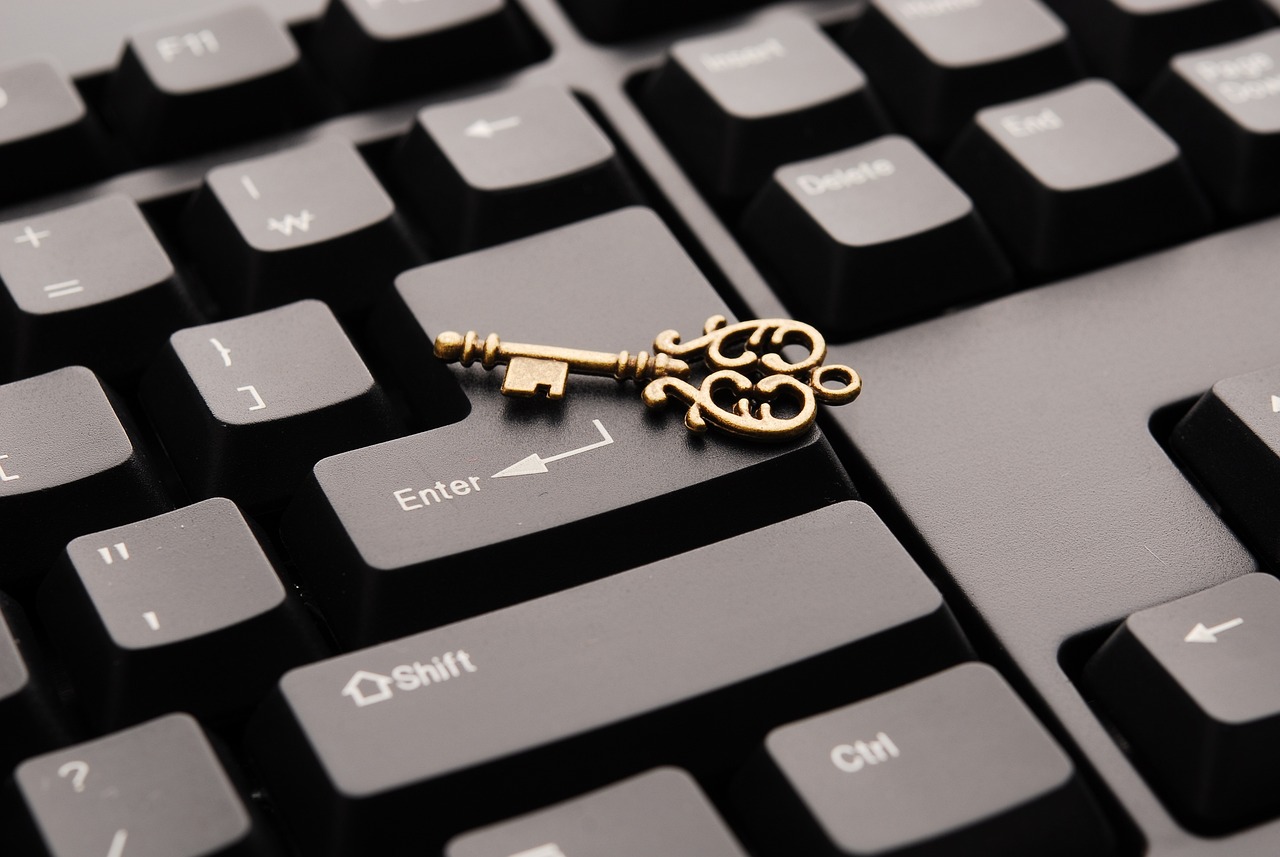
Reporting to Authorities
When you find yourself in the unsettling situation of online stalking, knowing how to report it to the authorities can be a game-changer. It’s not just about feeling safe; it’s about taking a stand against harassment. First and foremost, it’s essential to document every incident meticulously. This means keeping a record of all unwanted communications, including messages, emails, and social media interactions. Consider creating a table to organize your evidence, which can help law enforcement understand the situation better:
| Date | Type of Communication | Content | Response |
|---|---|---|---|
| 2023-10-01 | Message | Received a threatening message on Facebook. | No response. |
| 2023-10-05 | Unwanted email with personal threats. | Blocked sender. | |
| 2023-10-10 | Comment | Harassing comment on Instagram post. | Reported to Instagram. |
Once you have documented your experiences, it’s time to reach out to the authorities. Depending on the severity of the situation, you may want to contact local law enforcement or even the cybercrime unit. When making your report, be clear and concise. Explain the situation, provide your documentation, and express your concerns about your safety. Remember, the more detailed your report, the more likely they will take your case seriously.
It’s also worth noting that many jurisdictions have specific laws regarding online harassment and stalking. Familiarizing yourself with these laws can empower you to advocate for yourself effectively. If you’re unsure about the legal landscape in your area, consider seeking advice from a legal professional who specializes in cyber law.
Lastly, don’t hesitate to lean on your support network during this challenging time. Friends, family, or even online communities can offer emotional support and guidance. They can help you navigate the reporting process and remind you that you’re not alone in this fight. Remember, reporting online stalking is not just about protecting yourself; it’s about standing up for your rights and potentially helping others who may be in similar situations.
- What should I do if I feel unsafe while reporting? If you feel threatened, it’s essential to prioritize your safety. Consider reaching out to a trusted friend or family member to accompany you when reporting to authorities.
- Can I report online stalking anonymously? Many police departments allow for anonymous reporting, but it may limit their ability to investigate. It’s best to provide as much information as you can.
- What if the authorities don’t take my report seriously? If you feel your report is not being taken seriously, don’t hesitate to follow up. You can also seek legal advice or contact advocacy groups for support.

Community Support Groups
When it comes to facing the challenges of online stalking, feeling isolated can be one of the most daunting aspects. However, connecting with can provide a much-needed lifeline. These groups offer not only a safe space to share experiences but also invaluable resources to help individuals navigate their situations. Whether you're looking for emotional support or practical advice, community groups can be a beacon of hope during tough times.
So, how do you find these groups? Many local organizations and online platforms host support networks specifically for victims of online harassment. You might consider searching for groups on social media platforms, community centers, or mental health organizations. Websites like Meetup can also be a great resource for finding local gatherings. Additionally, many national organizations have online forums where people can share their experiences and seek advice.
Participating in these groups can help you realize that you are not alone in your struggles. It’s empowering to hear stories from others who have faced similar challenges, and it can provide a sense of camaraderie that is hard to find elsewhere. Many members share tips on how they dealt with their stalkers, which can be incredibly beneficial. For example, some might discuss how they successfully adjusted their privacy settings or how they approached law enforcement.
Moreover, these groups often organize workshops and seminars that focus on educating members about online safety and personal security. Here are some common themes you might find in community support group meetings:
- Sharing Experiences: Members discuss their encounters and coping strategies.
- Educational Resources: Workshops on privacy settings, cybersecurity, and legal rights.
- Emotional Support: Group therapy sessions led by professionals.
Engaging with a community support group can also lead to lasting friendships. The bonds formed through shared experiences can be incredibly strong, providing not just support but also a sense of belonging. It’s like finding your tribe—people who truly understand what you’re going through and can offer both empathy and practical advice.
In conclusion, community support groups are a vital resource for anyone dealing with online stalking. They not only provide emotional support but also equip individuals with the tools and knowledge necessary to reclaim their lives. If you’re feeling overwhelmed, consider reaching out to a local group or an online community. You don’t have to face this alone; there are people ready to support you on your journey toward healing.
Here are some commonly asked questions regarding community support groups for online stalking:
| Question | Answer |
|---|---|
| How do I find a community support group? | You can search on social media platforms, community centers, or websites like Meetup for local gatherings. |
| Are these groups confidential? | Most support groups prioritize confidentiality to create a safe space for sharing experiences. |
| Can I attend online support groups? | Yes! Many organizations offer virtual meetings, making it easier to connect from anywhere. |
| What should I expect in a support group? | Expect a mix of sharing experiences, educational resources, and emotional support from peers. |
Frequently Asked Questions
- What is online stalking?
Online stalking refers to persistent harassment or monitoring of an individual through digital platforms. It can involve unwanted communication, tracking of online activity, and invasion of privacy. Understanding the signs is crucial for early intervention.
- How can I recognize if I'm being stalked online?
Common signs include receiving excessive messages, comments, or friend requests from the same person, as well as noticing that someone is monitoring your social media activity closely. If you feel uncomfortable or threatened, it's essential to take action.
- What steps can I take to enhance my privacy settings?
You can enhance your privacy settings by reviewing and adjusting your social media profiles to limit visibility. Make sure to restrict who can see your posts and personal information, and consider using two-factor authentication for added security.
- Should I report online stalking to authorities?
If you feel threatened or your safety is at risk, it’s important to document incidents and report them to the authorities. They can provide guidance and support in dealing with the situation effectively.
- Are there support groups for victims of online stalking?
Yes, there are many community support groups available, both locally and online. These groups can provide emotional support, resources, and advice on how to handle online stalking situations.
- What should I do if I receive unwanted messages?
If you receive unwanted messages, it’s best to block the sender and report the messages on the platform. Keeping a record of these communications can also be helpful if you decide to take further action.
- Can I completely eliminate my digital footprint?
While it’s challenging to completely eliminate your digital footprint, you can minimize it by regularly reviewing your online accounts, deleting unused profiles, and being cautious about sharing personal information.
- What legal actions can I take against an online stalker?
Legal actions vary by jurisdiction, but you may be able to file a restraining order or pursue charges related to harassment. Consulting with a legal professional can help you understand your options.

















